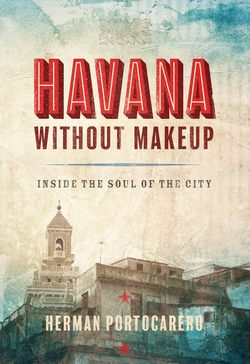Читать книгу Havana without Makeup - Herman Portocarero - Страница 25
На сайте Литреса книга снята с продажи.
Оглавление18.THE ECONOMY AS A BOOK AND A BEAST
It took until 2011–2012 for the government to realize that President Chávez was mortal, and that Venezuela was now so deep into her own economic difficulties that the reform process in Cuba had to be taken up where it had ended in 1999.
In the meantime, Fidel had resigned from power in 2006 due to ill health, and his brother Raúl had taken over as leader of the Communist Party, the Government, the State, and the Armed Forces, all in one. Not only had economic reform come to a standstill, but the main architects of the 1990s changes – the dollar, limited private entrepreneurship, conditional foreign investment – had disappeared from the political scene.
By the time the Venezuelan aid was running out of steam due to President Chávez’s declining health and Caracas’s own troubles in 2012, the entire situation had created yet another time warp, like the 1950s Chevrolets still dominating the cityscape.
It was the debate about reforming a communist economy – a debate that had occurred between 1985 and 1989 in the Soviet Union, and was of course fatally lost by orthodox communists clinging to their dogmas while their society was waking up to entirely different realities. But Havana ignored this and tried to do it over.
To go again through all the false starts, absurd speculation, and pussyfooting around the crucial issues, as official Havana started doing in 2012 as part of the “updating” of the economy, was frustrating at best.
The very phrase actualización del modelo económico became coded language to avoid speaking outright of reforms.
Also, having to revert to the “Kremlinology” of the 1970s and early 1980s to gauge the daily reformist or conservative moods of leaders who were well into their eighties, was not exactly forward looking.
It became a long narrative of the past of the future: the sliding of an enforced utopia into the harsh realities of a freer but unforgiving world. On top of that, the world financial crisis of 2008 raised legitimate questions even for committed Cuban reformers: what did the outside world really have to offer? Weren’t many Western politicians themselves now at a loss about the future?
A passionate onlooker would want to say, or sometimes scream: Friends, you haven’t understood a thing. You treat the economy as if it were an intellectual exercise. But you know what? The economy is an animal. If you feed it, it will feed you.
Being an organism, the economy can be wild, it can be tamed, it can be controlled, and it can be manipulated. Freed up, it will drag you into a rollercoaster of wealth and misery; you don’t want it to run wild, but you can’t keep it caged forever either. Enormously complicated decisions face you, for which you have no training. You’ll learn, like all of us, with black eyes and bloody noses, and there will be winners and losers. That, my friends, is the economy – because that’s the human condition, too, for better or for worse.
But you have to let it live first, not suffocate it with rhetoric and academic overthink. Your theories cannot replace decisions. And sooner or later you – and the poorest of your people – will pay the price for the delays and for the hesitations: for if you don’t make your moves, the good things will sink with the bad. The real-world economy will not obey linear decisions. Everything you decide will have side effects and ramifications you’ll have to deal with. The economy is a very complicated animal indeed, and you will never be entirely on top. Even the BRIC countries are going through learning curves, realizing that you can’t adopt capitalism as a pet; it will bite back, and you’ll have to go through its cycles of boom and bust and all the unintended ills of rapid growth. But in Cuba, that process hasn’t even really started yet.
Official Cuba still rejects the label of “an economy in transition.” Cuba is supposedly just adapting and perfecting the system. The Chinese model goes too far. The Vietnam one feels better. We’ll keep what we have, only make it better.
This may be a noble intention, but how feasible is it, with Cuba being where and what it is, in size, resource base, infrastructure, and outlook? Young people are not immune to the worst materialism, which has been exacerbated by the denial of its aspirations. Will not a massive brain drain soon bleed the island of her brightest?
